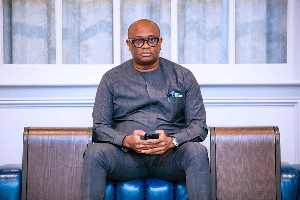By Kwesi Wilson
In a recent article, BBC said that money is the main incentive used to recruit for the Nigerian terrorist organization, Boko Haram. I have always believed that to be the case insofar as terrorist groups in Africa are concerned. Poverty is making the spoils of terrorism palatable.
Often times we think absolute power corrupts absolutely, we rarely give any thought to what absolute powerlessness can do. Absolute powerlessness corrupts just as much as absolute power. When a downtrodden people cannot find legal and socially acceptable means to make ends meet, they will resort to unacceptable ways. They get corrupted. Yes, that's what total despair does. But many of us in examining or trying to understand terrorism in Africa tend to conflate the catalyzing factors with that of Europe, United States, and Middle East.
The conditions vary when it comes to terrorism in these three regions even though the tactics are the same.
In Europe, a right-wing campaign to keep their specific European culture authentic by alienating foreigners as other has marginalized and demeaned Muslims. There is a quasi-segregation of sorts, which forces Muslims and other immigrants to live in clusters in various neighborhoods. This feeling of "otherness" is fortified with prejudice and discrimination, which intensified after the September 11 attacks in the United States. Those attacks cast a spell of suspicion on all Muslims in Europe, and gave right-wing and neo-Nazi justification to alienate Muslims.
Radicalization in the Middle East, on the other hand, has a different story. Theirs is driven by a belief that imperialists and infidels have taken over their land and lives. And you have the Wahabism, extremist version of Islam, to blame for terrorism in that region.
Africans, though, have a different story. Africans have for the most part been tolerant of people of other religious beliefs. Religious violence didn't really take root in the continent until after September 11, when criminal gangs figured they could make money by taking advantage of high rates of unemployment.
If African youth had jobs and decent lives, organizations like Boko Haram and Al-Shabaab in Somalia would not be a career choice for any of them. If we had access to education and the economic ladder was extended to every citizen — not just the privileged elite — we wouldn't have this cancer in our midst.
We can declare and wage wars against terrorists in Africa, but without economic justice, they'll always find desperate young people to replace those we kill.
Opinions of Saturday, 2 April 2016
Columnist: Wilson, Kwesi
Poverty, not religious ideology, is radicalizing African youth
Entertainment













